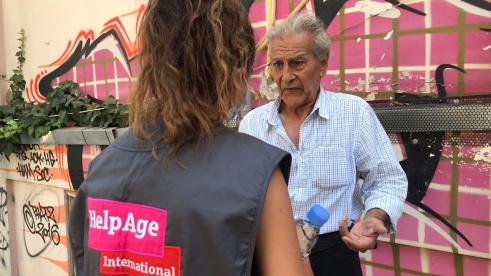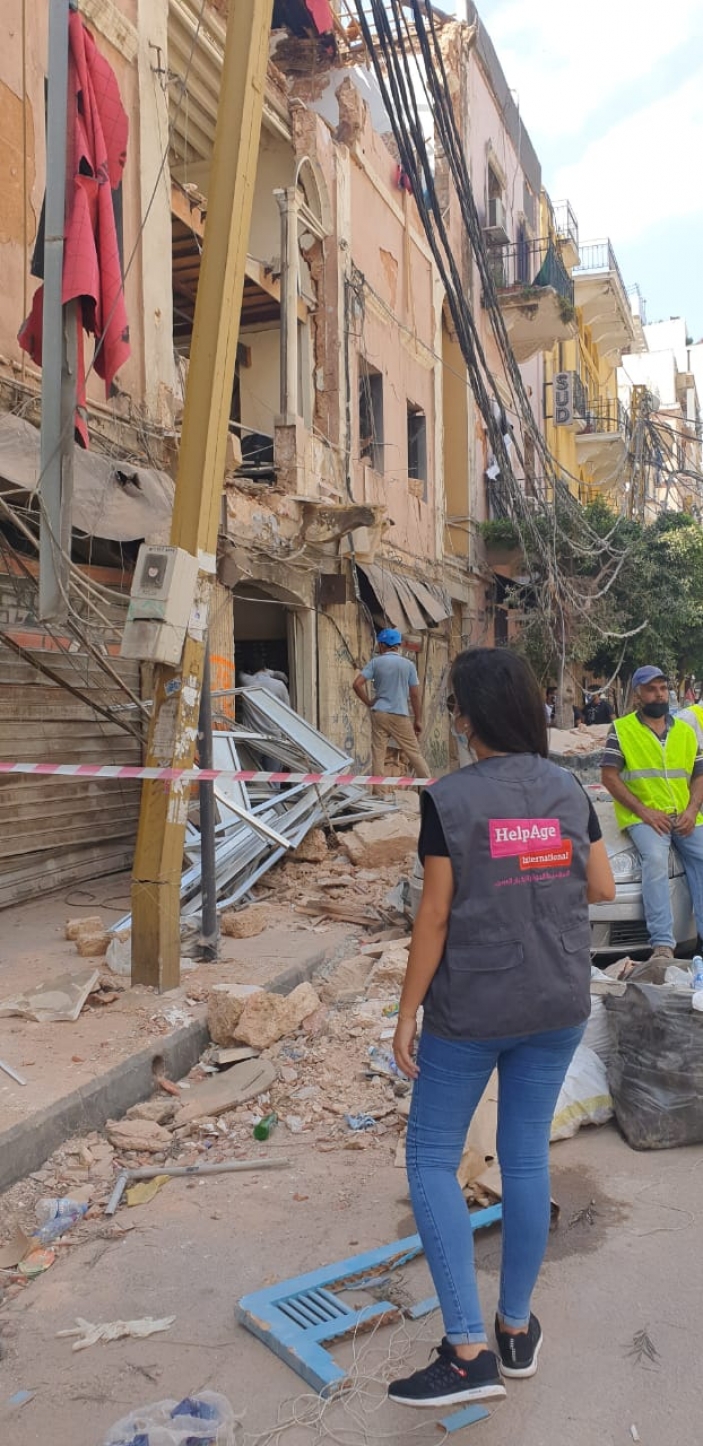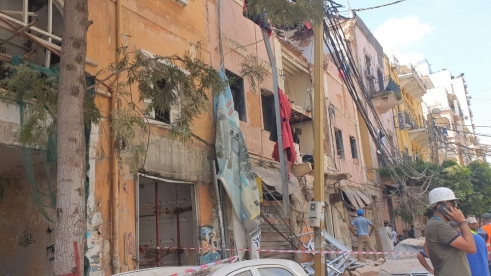Donors must urgently come together and deliver a comprehensive assistance package for the people affected by the Beirut blast, HelpAge International said today as it published the findings of a Rapid Needs Assessment conducted with national partners.
“The toxic mix of COVID-19, political instability, and a weak and under-funded public health system – compounded by the scars of years of unrest and conflict – are going to create huge obstacles to recovery from the Beirut blast that the humanitarian community must come together to address,” said Chris McIvor, director for Eurasia and the Middle East at HelpAge International.

A survey of 802 people across all age groups living in the port area has identified the immediate and urgent humanitarian needs and identified requirements for the longer-term recovery of people affected by the blast.
Thousands of people, particularly displaced families, urgently require cash, hot meals, food rations and assistance with rebuilding their homes in the immediate response. But humanitarian agencies must also prioritise the socio-economic and mental health needs of those whose lives have been torn apart.

“Older people and Syrian refugees in Lebanon have already lived through so much trauma and their sense of uncertainty and unrest about the future in this time of COVID has been deepened by the blast. One quarter of those we spoke to are worried about their mental health which the humanitarian response must address as a priority,” said Chris McIvor.
The Lebanese health care system needs urgent and immediate assistance. It was under immense pressure before the onset of COVID-19 and is not equipped to contain the virus and care for those affected by the explosion. Only 1% of those surveyed had received any health support since the blast and 45% said they were having difficulties getting hold of the medicines they need.
There has been a rapid rise in COVID-19 cases in the wake of the explosion and many precautionary measures have been dropped as a result of the emergency. This increases the likelihood of higher transmission rates and an unmanageable caseload in the coming weeks.
“Only 6% of those surveyed were concerned about COVID-19, but this does not mean the risk can be dismissed. The intersection between COVID-19, the diminished health system and this emergency will exacerbate the risks posed by the virus – particularly to older people and those with pre-existing health conditions,” said Chris McIvor.
In the immensely challenging process of recovery and rehabilitation, individual protection must be prioritised. Houses which remain habitable must be repaired to protect the inhabitants – particularly those of women and older people – from harm and other forms of abuse and ensure people can be safe in their home.
It is also critical in this time of COVID-19 that safe and appropriate accommodation is provided for older people and those with underlying health conditions.

People expressed the need for cash to purchase materials to repair their homes but this may not be enough as local markets risk closing due to the high cost and limited availability of materials.
Basic water and sanitation services have been interrupted and with the annual rainy season due to begin in early September, the vulnerabilities in the electricity, sewage and water networks must be addressed as a matter of urgency, especially in the Karantina and Bourj Hammoud areas.
“The huge surge in public response after the explosion was uplifting and overwhelming. But we cannot afford to sit back and let people lose interest as time passes. Our needs assessment clearly lays out the needs of people in Beirut. We now need to channel the initial wave of support to create an effective crisis response that will not only feed people now but help them recover in the long term,” said Chris McIvor.
Notes to editors:
In the immediate aftermath of the blast, HelpAge International partnered with partner Lebanese NGOs to deliver a rapid needs assessment of people living in the areas affected by the blast. Dorcas/Tabitha, MSD, Makassad and Amel worked with HelpAge to train and deploy an assessment team who collected information in the areas closest to the epicentre of the blast in the port.
A total of 802 people were interviewed, of which 85% were Lebanese, 14% were Syrian, and 2% were other nationalities. 54% of respondents were men and 46% were women, with 61% of male headed households and 39% female. 66% of respondents were older people (50 years and above) and 33% were aged between 18-50. 68% of households surveyed were headed by an older person (aged over 50).
In late May 2020, a Rapid Needs Assessment conducted by HelpAge in Beirut identified that 68% of people aged 50 and above had at least one disability or impairment.
The assessment was carried out in the neighbourhoods of Baddawi, Bourj Hammoud, Gemayzeh, Geitawi and Karantina.
